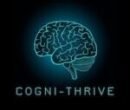The Overlooked Link Between Hearing and Cognitive Decline
Hearing loss is one of the most common health issues facing adults, particularly those over the age of 60. Often seen as an inconvenient part of aging, untreated hearing loss is far more serious than many realize. Mounting evidence shows a strong link between hearing impairment and cognitive decline, including an increased risk for dementia.
While it may start with missing words in a crowded room or needing the TV a little louder, hearing loss can quietly compromise your brain’s health over time. Fortunately, there are steps you can take to minimize this risk and maintain your mental sharpness.
Why Hearing Health Is Crucial for Your Brain
When hearing begins to decline, the brain must work harder to interpret sounds, especially in noisy environments. This added effort creates mental fatigue and stress, which reduces the brain’s capacity to focus on other cognitive functions. Over time, this constant strain can contribute to memory issues, reduced attention span, and a tendency to withdraw from social interaction.
Social engagement is essential for a healthy brain. When people struggle to hear, they may begin to avoid conversations and group activities. This isolation reduces the mental stimulation that comes from interacting with others—stimulation that helps build new neural connections and preserve existing ones.

Early Hearing Loss Can Be a Warning Sign
A 2024 study published in Nature Neuroscience reinforced what researchers have been discovering over the past decade: the brain begins to change years—sometimes even decades—before symptoms of dementia become obvious. This early phase, often referred to as the “silent phase,” may go unnoticed, but it still carries risk. Subtle changes, such as hearing loss or difficulty focusing during conversations, may be early indicators of declining cognitive health.
The key takeaway is this: conditions like hearing loss are modifiable risk factors. Addressing them early can help slow or even prevent the onset of more serious cognitive disorders.
Taking Action: What You Can Do Today
If you or someone you care about is noticing changes in hearing, don’t ignore it. Taking action early can make a tremendous difference. Here are a few proactive steps you can take:
- Get a hearing evaluation: Schedule a visit with a licensed audiologist to determine the extent of hearing loss.
- Consider amplification devices: While traditional hearing aids can be expensive, newer technologies—like smartphone-compatible earbuds with amplification features—offer more affordable options.
- Stay socially engaged: Make an effort to remain active in conversations, even in challenging environments. Hearing support can help reduce the temptation to withdraw.
- Monitor cognitive health: Take regular cognitive assessments to understand your brain’s current functioning and spot changes early.
- Address other risk factors: Manage high blood pressure, diabetes, and visual impairment—all of which are linked to cognitive decline.

Vision and Brain Health: Another Critical Connection
Just like hearing, vision plays a vital role in keeping the brain stimulated and engaged. Poor vision can limit activities, mobility, and confidence, leading to further social withdrawal. Regular eye exams and updated lenses or corrective procedures like cataract surgery can restore not only sight but also confidence and cognitive engagement.
The Brain Is a Muscle—Exercise It
Cognitive decline is not an inevitable part of the aging process. The brain thrives on challenge, novelty, and interaction. Without stimulation, it slows down, just like any other underused muscle. By keeping your senses sharp, maintaining social connections, and engaging in mental activity, you actively protect your brain’s longevity.

Don’t Wait—Control What You Can
While no one can predict the future, there is plenty you can control today. Hearing loss is more than a nuisance—it’s a signal that deserves attention. Early detection and treatment can have a profound impact not only on quality of life but also on long-term cognitive health.
Take charge of your well-being by addressing hearing issues, supporting your brain, and making proactive health choices that keep you engaged, connected, and thriving for years to come.








